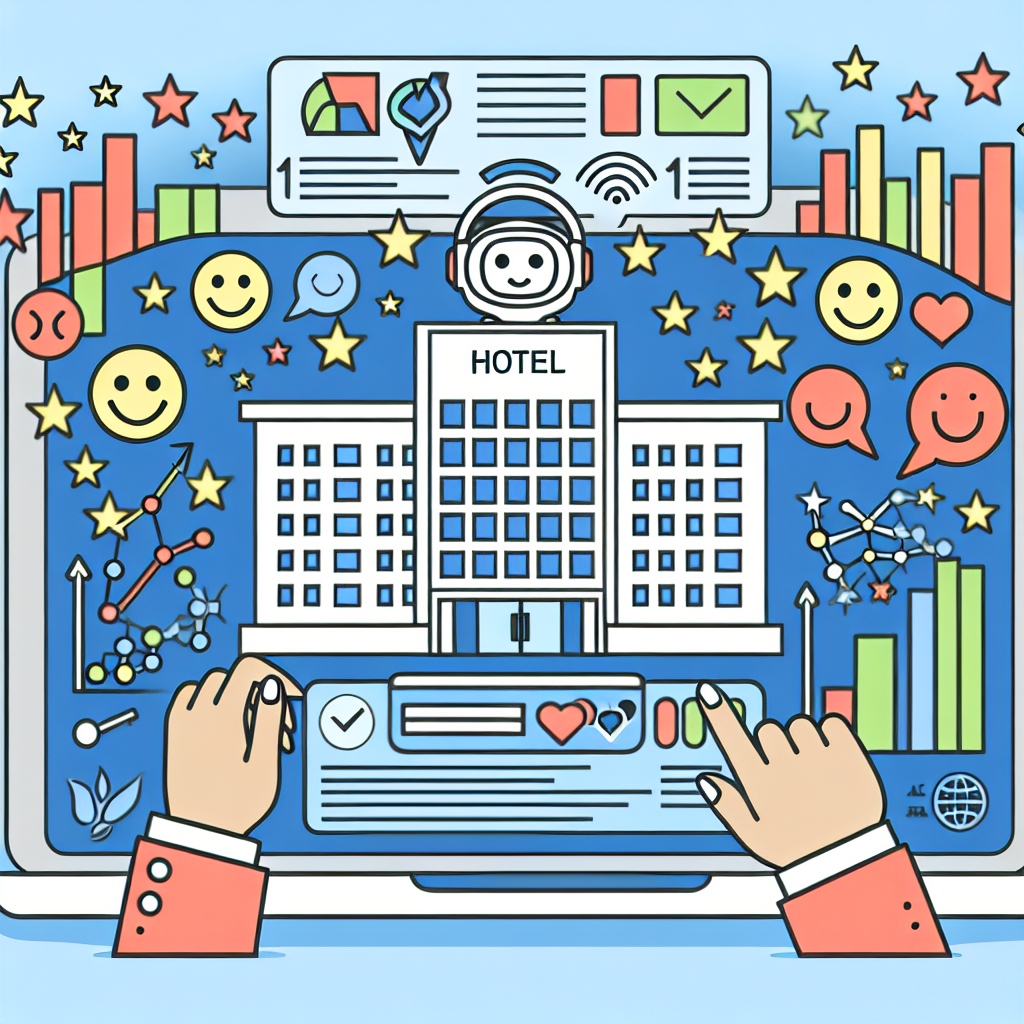In today’s competitive hospitality industry, hotels are constantly looking for ways to improve customer satisfaction and loyalty. One emerging technology that is revolutionizing the way hotels interact with their guests is artificial intelligence (AI) and sentiment analysis.
AI refers to the simulation of human intelligence in machines that are programmed to think and learn like humans. Sentiment analysis, on the other hand, is a process of analyzing and understanding the emotions and opinions expressed in text data. When combined, AI and sentiment analysis can help hotels better understand their guests’ preferences, needs, and sentiments, allowing them to provide personalized and exceptional customer experiences.
How AI and Sentiment Analysis Work in Hotels
In hotels, AI and sentiment analysis can be used in various ways to improve customer satisfaction and loyalty. One common application is in chatbots, which are AI-powered virtual assistants that can interact with guests in real-time. Chatbots can answer guests’ queries, provide recommendations, and even assist with bookings, all without the need for human intervention.
By analyzing the sentiments expressed by guests in their interactions with chatbots, hotels can gain valuable insights into their preferences and pain points. For example, if several guests express dissatisfaction with the quality of the food in the hotel’s restaurant, management can take proactive steps to address the issue and improve the overall dining experience.
Another way hotels can leverage AI and sentiment analysis is through social media monitoring. By analyzing social media posts and reviews, hotels can track the sentiments of their guests and identify trends and patterns in their feedback. This information can be used to tailor marketing campaigns, improve service offerings, and address any negative feedback before it escalates.
Additionally, AI and sentiment analysis can be used to personalize the guest experience. By analyzing guests’ past interactions, preferences, and feedback, hotels can tailor their offerings to meet individual needs and preferences. For example, if a guest has a history of booking spa treatments during their stay, the hotel can proactively offer a spa package as part of their booking process.
Benefits of AI and Sentiment Analysis in Hotels
The use of AI and sentiment analysis in hotels offers several benefits, including:
1. Improved Customer Satisfaction: By understanding guests’ sentiments and preferences, hotels can tailor their services to meet individual needs, leading to higher levels of customer satisfaction.
2. Increased Efficiency: AI-powered chatbots can handle multiple customer queries simultaneously, reducing the workload on hotel staff and improving response times.
3. Enhanced Personalization: By analyzing guests’ interactions and feedback, hotels can offer personalized recommendations and experiences, strengthening customer loyalty.
4. Proactive Issue Resolution: By monitoring sentiments expressed by guests, hotels can identify and address issues before they escalate, preventing potential negative reviews and customer dissatisfaction.
5. Competitive Advantage: Hotels that leverage AI and sentiment analysis to enhance the guest experience can differentiate themselves from competitors and attract more guests.
Frequently Asked Questions (FAQs) about AI and Sentiment Analysis in Hotels
Q: How can hotels ensure the privacy and security of guest data when using AI and sentiment analysis?
A: Hotels should adhere to strict data protection regulations and ensure that guest data is encrypted and stored securely. Additionally, hotels should obtain guests’ consent before collecting and analyzing their data.
Q: How can hotels measure the success of their AI and sentiment analysis initiatives?
A: Hotels can track key performance indicators such as customer satisfaction scores, repeat booking rates, and social media sentiment analysis to measure the impact of their AI and sentiment analysis initiatives.
Q: Are there any limitations to using AI and sentiment analysis in hotels?
A: While AI and sentiment analysis offer many benefits, there are some limitations, such as the potential for bias in the data used for analysis and the risk of misinterpreting guest sentiments.
Q: How can hotels ensure that AI-powered chatbots provide accurate and relevant information to guests?
A: Hotels should regularly train and update their chatbots to ensure they have access to the latest information and are capable of providing accurate and relevant responses to guest queries.
Q: How can hotels use AI and sentiment analysis to improve employee satisfaction and productivity?
A: Hotels can use AI and sentiment analysis to analyze employee feedback and sentiment, identify areas for improvement, and provide personalized training and development opportunities to enhance employee satisfaction and productivity.
In conclusion, AI and sentiment analysis are powerful tools that hotels can leverage to improve customer satisfaction and loyalty. By analyzing guests’ sentiments and preferences, hotels can tailor their services to meet individual needs, enhance personalization, and create exceptional guest experiences. As the hospitality industry continues to evolve, hotels that embrace AI and sentiment analysis will have a competitive edge and be better positioned to attract and retain loyal guests.

